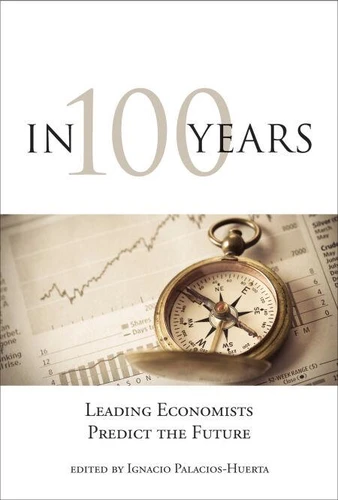In 100 Years. Leading Economists Predict the Future
Par :Formats :
Disponible dans votre compte client Decitre ou Furet du Nord dès validation de votre commande. Le format ePub protégé est :
- Compatible avec une lecture sur My Vivlio (smartphone, tablette, ordinateur)
- Compatible avec une lecture sur liseuses Vivlio
- Pour les liseuses autres que Vivlio, vous devez utiliser le logiciel Adobe Digital Edition. Non compatible avec la lecture sur les liseuses Kindle, Remarkable et Sony
- Non compatible avec un achat hors France métropolitaine
 , qui est-ce ?
, qui est-ce ?Notre partenaire de plateforme de lecture numérique où vous retrouverez l'ensemble de vos ebooks gratuitement
Pour en savoir plus sur nos ebooks, consultez notre aide en ligne ici
- Nombre de pages216
- FormatePub
- ISBN978-0-262-32009-2
- EAN9780262320092
- Date de parution07/02/2014
- Protection num.Adobe DRM
- Taille843 Ko
- Infos supplémentairesepub
- ÉditeurThe MIT Press
Résumé
Join 10 prominent economists-including Nobel laureates-as they draw on economic theory and years of study to predict what's in store for humanity in the 22nd century. In scenarios that range from the optimistic to the guardedly gloomy, 10 esteemed economics look to the world of the 22nd century, considering such topics as the transformation of work and wages, the continuing increase in inequality, the economic rise of China and India, the endlessly repeating cycle of crisis and (projected) recovery, the benefits of technology, the economic consequences of political extremism, and the long-range effects of climate change.
One stimulating theory comes from 2013 Nobelist Robert Shiller, who provides an innovative view of future risk management methods using information technology. Meanwhile, Martin Weitzman raises the intriguing but alarming possibility of using geoengineering techniques to mitigate the inevitable effects of climate change .
One stimulating theory comes from 2013 Nobelist Robert Shiller, who provides an innovative view of future risk management methods using information technology. Meanwhile, Martin Weitzman raises the intriguing but alarming possibility of using geoengineering techniques to mitigate the inevitable effects of climate change .
Join 10 prominent economists-including Nobel laureates-as they draw on economic theory and years of study to predict what's in store for humanity in the 22nd century. In scenarios that range from the optimistic to the guardedly gloomy, 10 esteemed economics look to the world of the 22nd century, considering such topics as the transformation of work and wages, the continuing increase in inequality, the economic rise of China and India, the endlessly repeating cycle of crisis and (projected) recovery, the benefits of technology, the economic consequences of political extremism, and the long-range effects of climate change.
One stimulating theory comes from 2013 Nobelist Robert Shiller, who provides an innovative view of future risk management methods using information technology. Meanwhile, Martin Weitzman raises the intriguing but alarming possibility of using geoengineering techniques to mitigate the inevitable effects of climate change .
One stimulating theory comes from 2013 Nobelist Robert Shiller, who provides an innovative view of future risk management methods using information technology. Meanwhile, Martin Weitzman raises the intriguing but alarming possibility of using geoengineering techniques to mitigate the inevitable effects of climate change .




